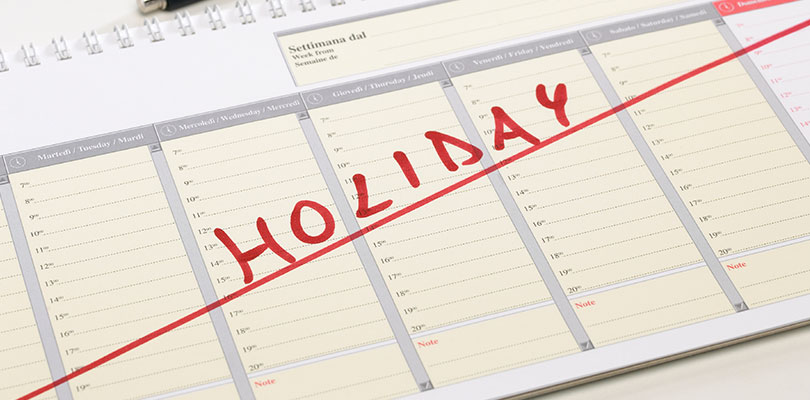
Photo Credit: davide chiarito / istockphoto.com
Ways to Manage Your Diabetes Through the Holidays
Thanksgiving and Christmas are important festive occasions for many families. While they involve happy celebrations with family and friends, they also offer food and beverage habits that can be difficult for diabetics. Holiday dinners with diabetes can be hard, especially when trying to maintain the discipline of controlling your blood sugar levels when everyone about you is indulging in your favorite foods and there are delicious treats everywhere.
Holiday dinners offer a number of challenges to the diabetic diet and lifestyle:
- They promote over-indulgence
- Meals are often served at unusual times, outside of your routine meal times
- The food is often higher in sugar and fat
- Alcohol is usually prominent
- There may be reduced opportunity for exercise
Knowing and preparing for some of these challenges can help make navigating the festivities easier. Here are some ways to help you navigate through the holiday season, while still enjoying some of your favorite food and beverages.
1. Define Your Holiday Period
While persistent high sugar levels are not good, a couple of days of slightly increased sugar levels will be fine. Allow yourself some leeway for the big days, while staying more conservative for the rest of the holiday season.
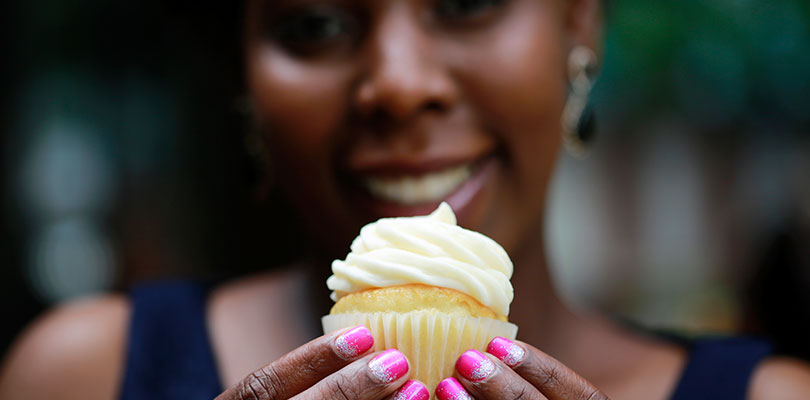
Photo Credit: galinast / istockphoto.com
2. Avoid Indulging Mindlessly on Snacks
Consider bringing your own healthy snacks, ideally protein or non-starchy vegetable based, to eat at your regular eating time while waiting for the main meal to be served.
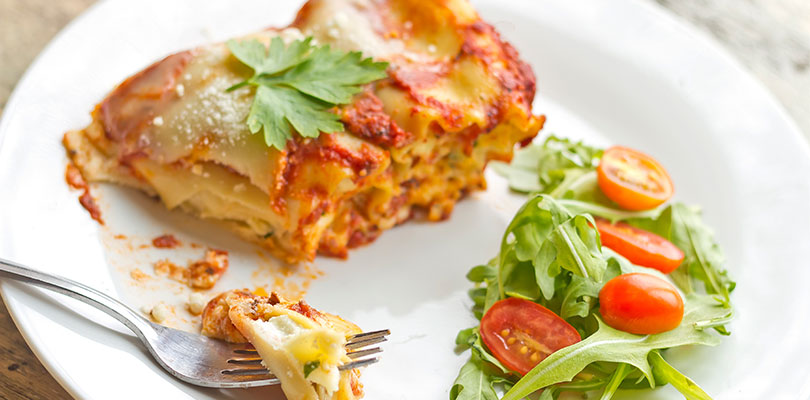
Photo Credit: EzumeImages / istockphoto.com
3. Don’t Be Tempted By “Diabetic Foods”
They offer no special benefit and are usually higher in calories and fat. You are better off eating smaller portions of the festive treats you would prefer to eat.
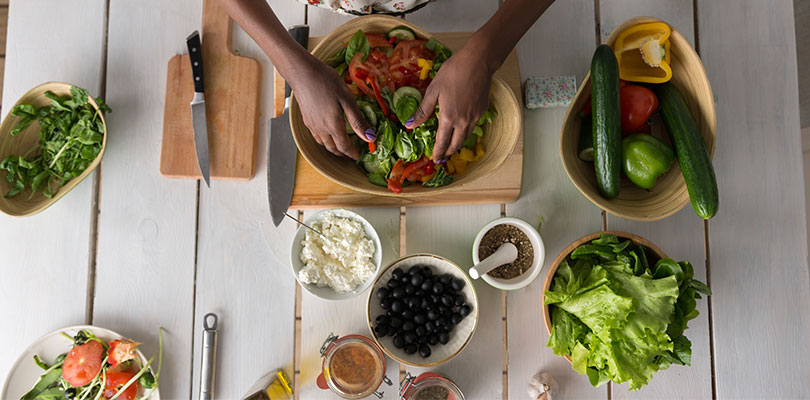
Photo Credit: HASLOO / istockphoto.com
4. Plan In Advance What You Intend to Eat at Dinner
Choose which of your favorite foods you most want to eat and which are nice but not worth it. That way you won’t be as tempted by all the food in front of you.
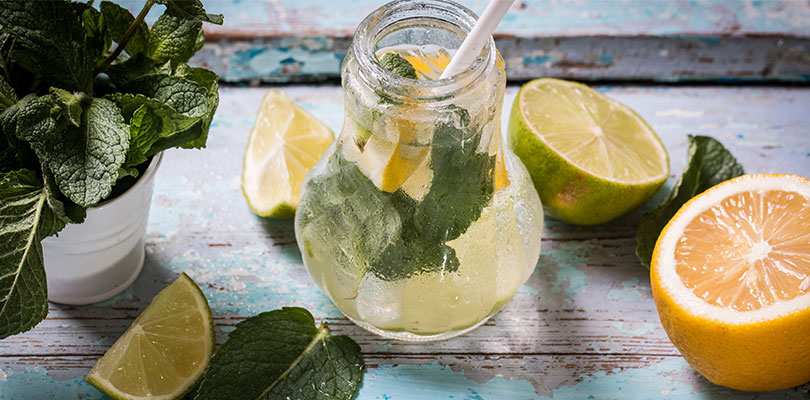
Photo Credit: id-art / istockphoto.com
5. Follow a Few Rules
- Drink a glass of water prior to the meal to make you feel fuller
- Make two-fifths of your plate vegetables
- Eat your favorite foods in moderation
- If there are lots of foods you like, eat a small portion of each
- Make your favorite foods healthier — avoid the skin and butter
- Eat slowly and spread the meal out
- Eat rich, sugary desserts and treats at the end of the meal to avoid a rapid increase in blood sugar levels
Exercise for diabetes is especially important to balance glucose levels and to prevent heart disease. Here are some top activities for diabetics to try.

Photo Credit: shironosov / istockphoto.com
6. Don’t Feel Bad About Turning Food Down
Most friends and family will understand and would prefer you stay healthy and live longer.
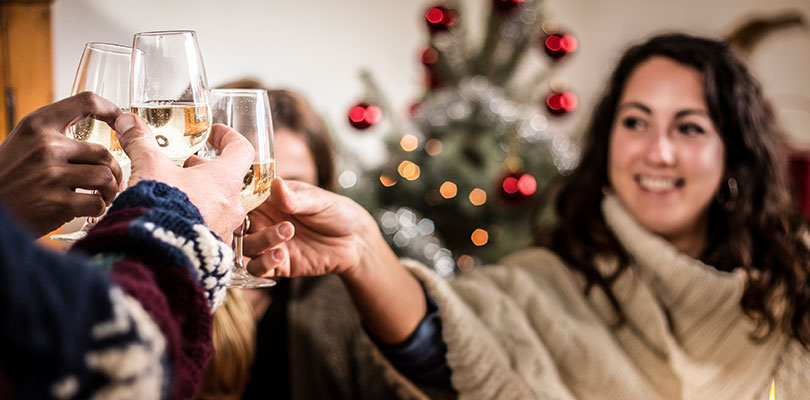
Photo Credit: Fastrum / istockphoto.com
7. Alcohol Can Cause Issues for Diabetics
Can diabetics drink alcohol? Not only is alcohol high in calories, but it can also cause the blood sugar levels to fluctuate. In particular, it can cause the sugar levels to drop too low.
You can avoid drinking too much by diluting the alcohol with sugar-free fizzy drinks and alternating between alcoholic and non-alcoholic drinks. At the end of the day, eat a snack before bed to avoid blood sugar dropping too low overnight.
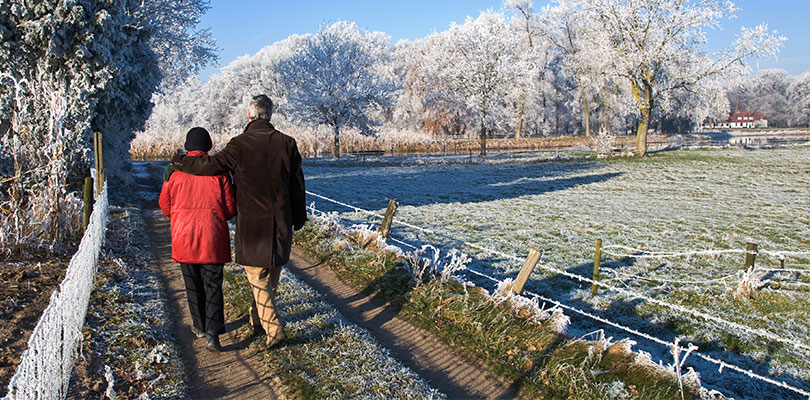
Photo Credit: hansslegers / istockphoto.com
8. Offset Overindulgences With Increased Exercise
This is a very effective technique many diabetics use to get through the festive season. Exercise helps to regulate blood sugar levels, so aim to go for a walk after the main meal.
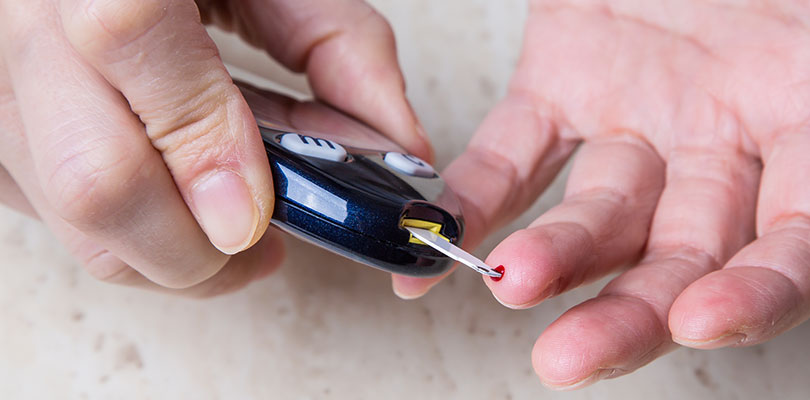
Photo Credit: gangliu10 / istockphoto.com
9. Test Your Blood Sugar Levels More Regularly During the Day
Type 1 diabetics can offset increases in sugar levels by taking a bit more insulin. Type 2 diabetics, however, should not increase the dose of tablets they may be on.
With some planning and by being selective, there is no reason why diabetics should not be able to indulge in many of the foods associated with the festive season. While sharing food is an important part of the celebrations, it can help to remember that spending time with family and friends is most important.
Vitamins and supplements for diabetes can help with the management of your condition and reduce the symptoms caused by deficiencies.








